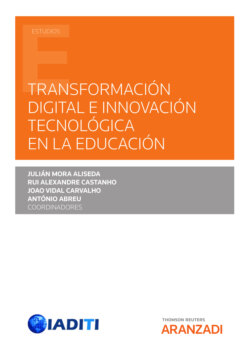Читать книгу Transformación Digital e Innovación Tecnológica en la Educación - António Abreu - Страница 5
На сайте Литреса книга снята с продажи.
Capítulo 1 Alfabetización mediática en estudios etnográficos: una revisión sistemática de la literatura científica
ОглавлениеMedia Literacy in Ethnographic Studies: a systematic review of scientific literature
Ignacio Balcázar Betancourth
Department of Communication, Universidad Politécnica Salesiana, Ecuador
ibalcazar@est.ups.edu.ec
Angel Torres-Toukoumidis
Department of Communication, Universidad Politécnica Salesiana, Ecuador
atorrest@ups.edu.ec
José Juncosa-Blasco
Department of Anthropology, Universidad Politécnica Salesiana, Ecuador
jjuncosa@ups.edu.ec
SUMARIO: 1. INTRODUCCIÓN. 2. MARCO TEÓRICO. 3. METODOLOGÍA. 4. RESULTADOS. 5. CONCLUSIONES. 6. REFERENCIAS.
RESUMEN: Reconociendo a priori la sobresaturación de mensajes y divulgación de la desinformación vislumbrada en la actualidad, la educación en medios se presenta como una alternativa a la alfabetización orientada al desarrollo analítico y crítico de los medios de comunicación e información, incluso tomando en cuenta la implicación de las redes sociales y nuevos espacios de interacción virtual. En este estudio, se realiza una revisión teórica sistematizada en Scopus, base de datos de mayor impacto internacional respecto a los manuscritos publicados sobre etnografía y educación mediática, obteniendo un total de 40 artículos, los cuales fueron valorados en base a 4 criterios: dimensiones de la alfabetización mediática, nivel educativo, tipo de etnografía, beneficio a estudiantes. Los resultados obtenidos demuestran una tendencia hacia las dimensiones de lenguaje y aquella denominada proceso de interacción, asimismo, el grado de primaria se dispone como el nivel educativo con mayor repercusión en este tipo de alfabetización, por su parte, la tipología etnográfica evidenciada en la mayoría de los estudios es de tipo micro y clásica. En cuanto a los beneficios a los estudiantes procede una aproximación autodidacta a la capacitación mediática hacia el uso de la multipantalla. Bajo esta tesitura, se concluye la existencia de un abordaje consistente entre la alfabetización mediática y la etnografía, sin embargo, aún se debe promover este tipo de metodologías dentro del campo educomunicativo.
PALABRAS CLAVE: Enseñanza, interacción, publicaciones científicas, nivel educativo, educación en medios.
ABSTRACT: Recognizing a priori the overloading of messages and the dissemination of misinformation currently in sight, media education is presented as an alternative to literacy aimed at the analytical and critical development of the media and information, even taking into account the involvement of social networks and new spaces for virtual interaction. In this study, a systematized theoretical review is carried out in Scopus, a database with the greatest international impact regarding published manuscripts on ethnography and media education, obtaining a total of 46 articles, which were evaluated based on 4 criteria: dimensions of media literacy, educational level, type of ethnography, benefit to students. The results obtained show a trend towards the dimensions of language and the so-called process of interaction. Likewise, the primary level is the educational level with the greatest impact on this type of literacy, while the ethnographic typology shown in most studies is of the micro and classic type. As for the benefits to the students, a self-taught approach to media training towards the use of multi-screen is appropriate. Under this tessitura, the existence of a consistent approach between media literacy and ethnography is concluded, however, this type of methodology should still be promoted within the educommunication field.
KEYWORDS: Teaching, interaction, scientific publications, educational level, media education.
